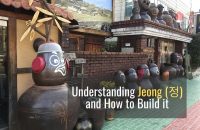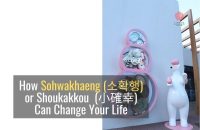Want to know how the Korean concept of gibun is different from mood in English?
We’ll cover:
- what it means
- how to read it
- how to improve it
Gibun is a less talked about part of Korean culture that’s just as important as the others.

Quick Summary
- Gibun in Korean means the feeling, mood or atmosphere of a person or group.
- It takes noonchi to read someone’s gibun.
Gibun is an underrated concept in Korea. Understanding how it affects relationships and even business will do wonders for your social life.
What does gibun mean?

Gibun (기분), sometimes written as kibun, is the mood or atmosphere of a person, group or place.
At the heart of it, gibun determines interpersonal relationships and how to maintain harmony with others.
Gibun is a relatively long-lasting emotional state. It’s different from gamjeong (감정 or emotions) since it’s not specific or strong, and not easily triggered by specific events. It’s more like background music that sets the mood of a café.
For example, near the end of the year, Koreans get into a “year-end gibun (연말 기분)”. People are focused on maintaining old relationships instead of forming new ones.
Or, when it’s raining, people get in the mood for pajeon and makgeolli.
Types of gibun

There are many types, but here are the most useful and easy to decipher:
- Bad – indicated by dark circles under eyes, low energy, short responses and low tone.
- Good – indicated by bright complexion, smiles, high tone and longer responses.

How to read gibun
It takes nunchi to read gibun, so many of the same principles work.
- Start fresh. Lose your preconceived notions while interacting with someone, such as their personality or opinions.
- Start with the face. Facial cues like dark circles under eyes, unwashed hair and make-up coverage can tell you a lot about gibun.
- Watch carefully. Pay attention to body language like posture and hand gestures.
- Listen. Note voice pitch, volume and intonation.
- Read between the lines. Is the overall tone of conversation negative or positive?
- While listening to someone, ask yourself what they feel, what they think and what they want.
Or, friends will tell you straight up by saying “기분 나빠” or “기분 좋아”.
How to improve gibun

Listen and empathize. Just being heard goes a long way for most.
Reword. Don’t get emotional with them but instead rephrase what they say.
Don’t give advice unless asked for. Most people just want to vent. Give them an opportunity to do so.
Get specific. Ask about quantifiable things like number of times someone did something or said something. Thinking mathematically activates the rational side of the brain and quiets the passions.
Gradually sway the conversation to things they like. Moving to topics they enjoy like movies and travel will cheer them up.
If nothing works, cut things short and say you hope they feel better. (himnae!)
Korean has some great idioms and concepts that make it worth learning. They are:
- jeong – unspoken bond
- noonchi – intuition or sense
- sohwakhaeng – small but certain happiness
- subeesu – free stuff
- banchan – side dishes
- ssam – leafy vegetable wrap
Knowing these will be bring you one step closer to understanding Korean culture!
Subscribe for
exclusive info on Korea
Did we miss anything?
Let us know your experience with gibun in the comments!





